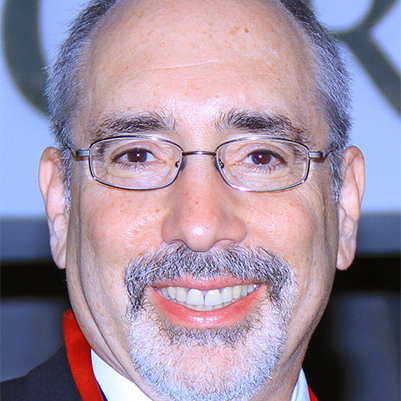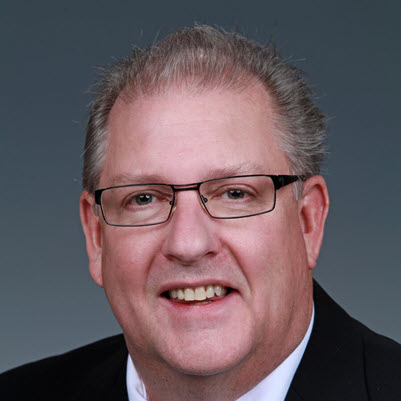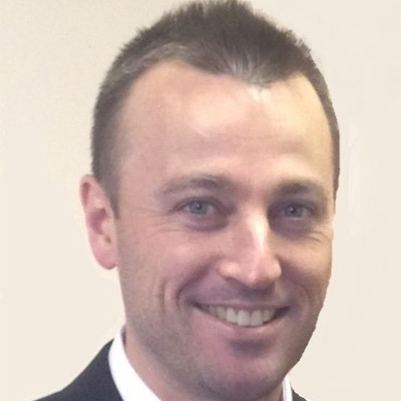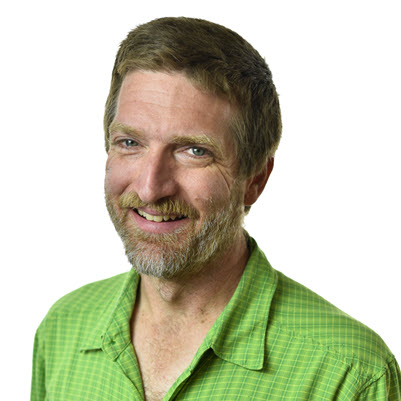Protecting U.S. Army Infrastructure by Enhancing Cybersecurity for Onsite Third-Party Energy Providers

Abstract:
The U.S. Army Office of Energy Initiatives (OEI) facilitates the procurement of independently owned and operated energy generating assets to support energy resilience capabilities at U.S. Army installations. When developing contracts for these assets, OEI implements a set of cybersecurity requirements it has developed based on energy sector consensus guidance. For many energy projects, these OEI Cybersecurity Requirements are the primary set of cybersecurity requirements the U.S. Army applies. For others, the U.S. Department of Defense Risk Management Framework and Cybersecurity Maturity Model Certification provide additional cybersecurity requirements and guidance.
AUTHORS

Pacific Northwest National Laboratory
Richland, Washington, United States
Scott Morris began his career at PNNL by initially supporting the U.S. Department of Energy's Appliance and Commercial Equipment Standards Program. He eventually transitioned to managing a team of cybersecurity researchers supporting the U.S. Army. Other projects he has supported include the Department of Energy (DOE) Distributed Wind Market Report, DOE's H2@Ports initiative, Visual Sample Plan, power system capacity expansion planning, and statistical and analytical support to other projects as requested. He also currently serves as a team lead for a team of electrical and power systems engineers who conduct simulations and analyze the impact of [all sorts of factors] on electricity supply and demand.

Pacific Northwest National Laboratory
Richland, Washington, United States
Cliff Glantz is a senior staff scientist and project manager with PNNL’s National Security Directorate. Mr. Glantz’s research focuses on critical infrastructure protection, cyber and physical security, risk management, consequence assessment modeling, and emergency response and preparedness. Mr. Glantz’s research supports a variety of U.S. government and international agencies and organizations.

Pacific Northwest National Laboratory
Richland, Washington, United States
Dr. A. David McKinnon is a Senior Cyber Security Researcher at the Pacific Northwest National Laboratory. His research interests are in cyber security and distributed sensor systems. Dr. McKinnon's current focus is on enhancing cyber security within the energy sector. He has advised U.S. utilities on smart grid and resilient energy cyber security projects. He has also led a research and development team that successfully developed and then transitioned a bio-inspired cyber security software to industry. As an adjunct professor, Dr. McKinnon taught computer and network security courses at Washington State University. He is a member of the ACM and a senior member of the IEEE.

Pacific Northwest National Laboratory
Richland, Washington, United States
Ryan M. Bays is an information assurance analyst at PNNL. He works in enterprise information technology and operational technology cybersecurity governance and risk management, concentrating on data-driven methodologies and modeling to improve cybersecurity decision-making, best practices, and technology. Prior to joining the DOE’s laboratory complex, he worked in fire management and incident operations for 10 years with the DOA; incorporating his unique experience in emergency and risk management, he contributes to both the cybersecurity operational and research excellence of PNNL. Ryan holds a BA in Cyber Security from Columbia Basin College. He is a member and active participant of the Factor Analysis of Information Risk (FAIR) Federal Government Chapter and the Society of Information Risk Analysts (SIRA) organization. Ryan is proactively focused on improving how cybersecurity risk is measured, managed, and communicated to support the Lab’s operation and accelerate the mission to advance the world’s strategic scientific and technological capabilities.

Pacific Northwest National Laboratory
Richland, Washington, United States
Lori Ross O’Neil is a Senior Cyber Security Researcher, Technical Project Manager, and Cyber Security Team Leader at the Pacific Northwest National Laboratory. In her current role with PNNL, Ms O’Neil innovatively leads multi-million-dollar cyber-physical research projects. Her teams work in partnership with government agencies, academia, and industry to perform research and development to deliver innovative ‘first of a kind’ solutions in the mission to protect critical infrastructure. She serves on the (ISC)2 Board of Directors, a global cyber security nonprofit association, holds a degree in computer science, along with CISSP and PMP certifications. Prior to coming to PNNL, Ms O’Neil worked at NASA supporting the Space Shuttle’s avionics and simulations.

Pacific Northwest National Laboratory
Richland, Washington, United States
Darlene Thorsen is a senior cybersecurity researcher at PNNL in Washington state. Her work aims to reduce cybersecurity risks for critical infrastructure by providing qualitative and quantitative analyses of operational energy risks to systems of systems. Her current work is assisting DOE and DHS in establishing doctrine, policies, and contract language to respond to and recover from cyber incidents affecting our nation’s critical infrastructure. Retired from the United States Army, she currently holds a master’s in information assurance and a Cybersecurity Information System Security Professional certificate (CISSP) #329977.

Pacific Northwest National Laboratory
Richland, Washington, United States
Paul Boyd is a Senior Research Electrical Engineer in Cybersecurity and Electricity Infrastructure with the Grid Operations Research Team at the Pacific Northwest National Laboratory. His research focuses on smart grid integration of Microgrids and Renewable energy. Paul is currently workingon establishing cybersecurity requirements for renewable energy, and providing recommendations for the US Airforce, Army and Army Reserves site for electrical infrastructure, that may include renewable energies, electricitystorage, Microgrids with energy management systems, utilizing various secure communication protocols and Networking configurations.

Pacific Northwest National Laboratory
Richland, Washington, United States
Jerry (Jey) Castleberry is an analyst in control systems cyber security at the Pacific Northwest National Laboratory (PNNL) in Richland, WA. His work has focused on protection of a variety of critical infrastructure sectors with a primary focus on energy. He has been a PNNL analyst for one year and has worked on a broad range of multidisciplinary cyber and cyber-physical security programs. Mr Castleberry has extensive experience working collaboratively with colleagues from international and domestic national laboratories, government agencies, and scientific organizations.

Pacific Northwest National Laboratory
Richland, Washington, United States
Fleur de Peralta is an Advisor in the Risk and Environmental Assessment group at PNNL. Her work focusses on developing tools and framework for managing nuclear safety and cybersecurity risk programs for renewable energy generating systems in support of the Nuclear Regulatory Commission, National Nuclear Security Administration, Department of Energy’s Offices of Nuclear Energy, Energy Efficiency & Renewable Energy, and Department of Defense. Ms. de Peralta holds a Bachelor of Science degree from UCLA in the field of Mechanical Engineering with emphasis on Thermal Science and Power Systems, Master's of Artdegree from Argosy University in Mental Health Counseling, and Certificates from UCLA Extension in Engineering Management and Fire Protection Engineering, and a Certificate from Harvard University’s Office of Vice Provost in the area of Cybersecurity – Information Risk Management.

Pacific Northwest National Laboratory
Richland, Washington, United States
Mark Watson is a cyber security analyst at PNNL. His current work focuses on cyber security for energy and water resilience assessments, hydropower and marine renewable energy, and incident response and computer network defense operations. Mr. Watson is developing risk management and situational awareness capabilities in critical infrastructure cyber security for the Department of Energy and the military components within the Department of Defense. Mr. Watson served in the United States Navy as a cryptologic technician in intelligence analysis and linguistics supporting the intelligence community. He holds a Bachelor of Arts degree in History from Pacific Lutheran University and an Associate of Arts degree in Spanish from the Defense Language Institute Foreign Language Center. Mr. Watson works on an array of research projects supporting the national security portfolio.

Pacific Northwest National Laboratory
Richland, Washington, United States
Carl Baker received his bachelor’s degree in mechanical engineering from Washington State University in 1988 and began a full-time position as a research engineer at Pacific Northwest National Laboratory in 1990. He received a master’s degree in mechanical engineering from Washington State University in 1993. During his career at Pacific Northwest National Laboratory, Mr. Baker worked on modeling and simulation of dynamic systems, design, fabrication and operation of robotic systems operating in hostile environments, Army Logistics and cyber security.
Published In
Journal of Information Warfare
The definitive publication for the best and latest research and analysis on information warfare, information operations, and cyber crime. Available in traditional hard copy or online.
Quick Links
Archive

